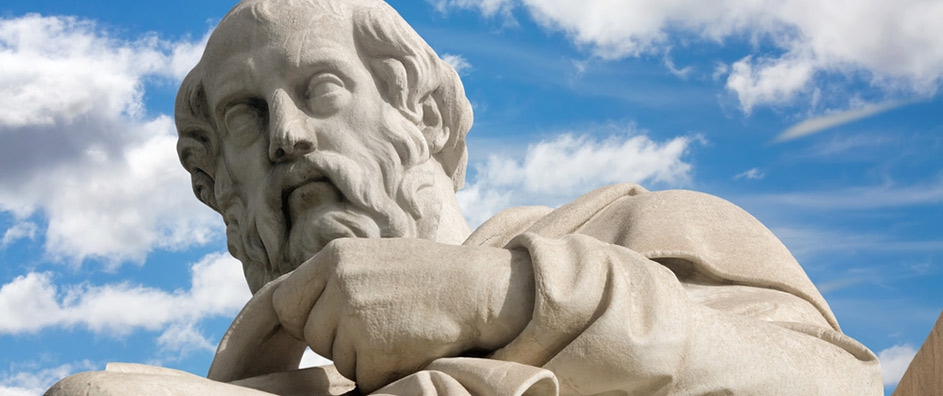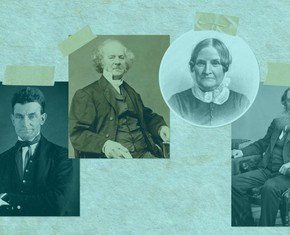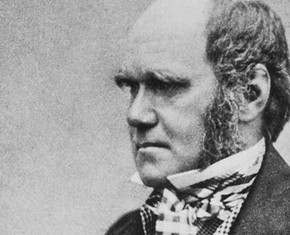The views expressed in our content reflect individual perspectives and do not represent the authoritative views of the Baha'i Faith.
The essence of Plato’s explanation of the basis for justice in the physical world consists of two general observations.
First, Plato expresses the belief that physical reality corresponds to and is a reflection of spiritual reality. To Plato this correspondence is no accident, no incidental quality of physical creation, but forms the essential nature and purpose of all created things.
Second, Plato believes that man can, by relying on his higher self, discern the spiritual messages that physical creation has to impart. These messages consist of the spiritual qualities, the abstract virtues or attributes, that exist in an ethereal condition in the spiritual realm, but which are presented to man in concrete forms so that these abstractions can be initially perceived and acquired.
According to Plato, this twofold arrangement is the basis for justice in the physical world as a whole. Individual human justice consists of the propriety, harmony, and integrity among all our faculties—each faculty or power functions precisely as it has been designed to. The mind governs the whole, and everything else (even our passions and desires) assumes a subordinate relationship to what the “higher” self decides is the best course of action for us to take. Only when we are in this “just” condition are we able to become the best individual we are capable of becoming.
Plato’s view of spiritual education is remarkably parallel to the Baha’i concept of the divine purpose of physical creation. Baha’u’llah, the prophet and founder of the Baha’i Faith, whose writings Baha’is accept as having scriptural authority, states that “every created thing is a sign of the revelation of God.” He further states that every human being has the capacity to recognize the imprint of the Creator in creation itself:
He hath endowed every soul with the capacity to recognize the signs of God. How could He, otherwise, have fulfilled His testimony unto men, if ye be of them that ponder His Cause in their hearts. He will never deal unjustly with anyone, neither will He task a soul beyond its power. – Baha’u’llah, Gleanings from the Writings of Baha’u’llah, p. 105.
Yet, as rewarding and influential as Plato’s work has been down through the ages, it is incomplete in its response to the question of the purpose of physical reality. How does Plato justify why human beings must endure physical experience in order to become informed about reality, especially if, as Socrates asserts, our soul endures beyond the death of the body?
Another missing ingredient in Plato’s description of reality is a Divine Being, a Creator Who assists creation and the individuals in it at every turn. For while Plato’s concept of “the Good” clearly alludes to his monotheistic belief, Plato never really attributes to this entity any awareness, concern, or cognitive powers. The Good is described more as the amalgamation or epitome or source of all virtue rather than as a willful designer and coordinator of created reality Who monitors the progress of his most important creation—the human being.
Certainly we could view the attributes of Plato’s Good as appropriate to a supreme God, but without some sense of willful concern for the creation that emanates from this Essence, this “source” of reality seems amorphous and unconvincing, or at least not very intimate, loving or lovable. True, Plato presents the ascent from the cave of ignorance to the light of knowledge as the result of attraction to, or the spiritual influence emanating from, the Good. But Plato’s mystic Source of reality does not exert any conscious effort to bring about the philosopher-king’s transformation, nor does the Good lend any overt aid to the ascent of humankind, other than indirectly through the influence of the philosopher–kings, who, through their own effort at enlightenment, descend back down into the cave of ignorance to teach whoever will heed their observations about reality. Consequently, the journey from darkness to light seems to be the result of individual insight and determination on the part of these special souls rather than the result of a divine plan of God.
Not that Plato ever intended his work to be a study of theology, but his model of human transformation is still at variance with the concept of a God Who is aware of, concerned with, and actively intervening in our individual lives as well as in human history. Furthermore, even if we interpret Plato’s specialized individuals, the philosopher-kings, as metaphorical representations of the prophets or messengers of God, the analogy fails to account for the repeated statements by the prophets that they do nothing on their own authority, but speak and act as God directs. In effect, where Plato’s philosopher-kings arise from ignorance by virtue of their own inner voice, the prophets clearly acknowledge that their knowledge is a gift of God bestowed on them as a means by which they might become divine messengers.
In defense of what Plato might have intended with the Republic, perhaps the single most influential work in Western philosophy, it is certainly possible that in his own mind Plato, or his mentor Socrates, is alluding to the philosopher-kings as functioning in the capacity of intermediaries between God and ordinary humans, who need the assistance of an educator. Indeed, perhaps this is precisely what Baha’u’llah meant when he stated the following about Socrates and Socratic thought:
What a penetrating vision into philosophy this eminent man had! He is the most distinguished of all philosophers and was highly versed in wisdom. We testify that he is one of the heroes in this field and an outstanding champion dedicated unto it. He had a profound knowledge of such sciences as were current amongst men as well as of those which were veiled from their minds. Methinks he drank one draught when the Most Great Ocean overflowed with gleaming and life-giving waters. He it is who perceived a unique, a tempered, and a pervasive nature in things, bearing the closest likeness to the human spirit, and he discovered this nature to be distinct from the substance of things in their refined form. He hath a special pronouncement on this weighty theme. Wert thou to ask from the worldly wise of this generation about this exposition, thou wouldst witness their incapacity to grasp it. – Baha’u’llah, Tablets of Baha’u’llah, pp. 146-147.
The dedication of the prophets of God to the instruction of humankind, even at the cost of their own lives, might certainly parallel allegorically the suffering and rejection that the philosopher-king experiences when he descends into the cave to lead others from the world of shadows and illusion up to an ever more expansive vision of reality. But we can only guess to what extent Socrates was aware of or was alluding to this theological concept and to this process of incremental enlightenment of humankind, especially since the works of his student Plato contain only the dramatic portrayal of recollections of Socrates and Socratic thought, not Socrates’ own words.
You May Also Like
Comments

















“Know well, then, that the god orders this. And I suppose that until now no greater good has arisen for you in the city than my service to the god. For I go around and do nothing but persuade you, both younger and older, not to care for bodies and money before, nor as vehemently as, how your soul will be the best possible."
A very good article, but questioning a platoon (who lived 350 BC) without having had the opportunity to meet any prophet who revealed to him the existence of God, to be a monotheist, at a time when he worshiped many deities and left high thoughts for the being human to reflect his identity and his ability to seek good, get out of ignorance and evolve, I believe he is a little uneven.
The Bahá'í Faith - Bahá'u'lláh, no doubt is the light for our present ...age - did Plato find this in the spiritual world?
I'm, Janete Argenton, Bahá’í from Brazil and fan of Bahaiteachings